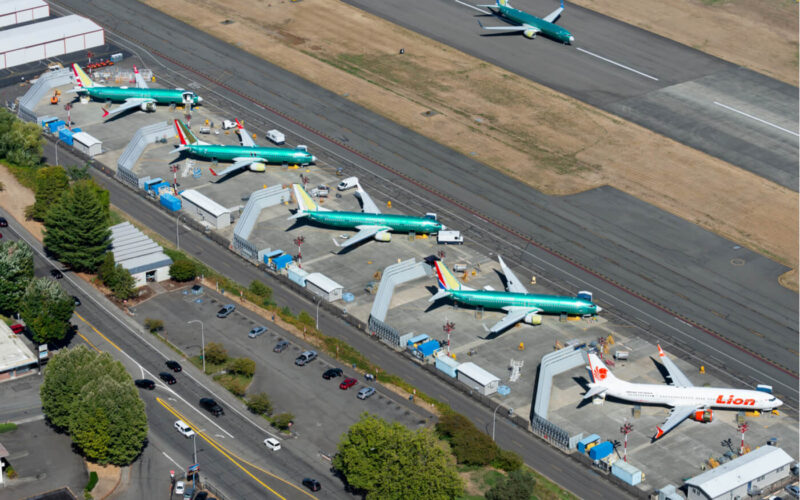Federal Aviation Administration chief Steve Dickson broke the news: the Boeing 737 MAX will not be certified before the end of 2019. He also admitted that the authority should have grounded the fleet after the first of the two crashes that costed the lives of 346 people.
The Boeing 737 MAX certification would not take place before 2020, Dickson revealed in an interview to CNBC, ahead of his hearing with the House Committee on Transportation. The information put an end to any hope to see the 737 MAX take back to the skies in 2019, as Boeing had anticipated for a time. He explained that a number of processes and milestones remain and “if you just do the math, it’s going to extend into 2020.”
An alarming report ignored
Facing the Congress, Dickson had to answer on an internal forecast of the regulator dating from December 2018, two months after the Lion Air crash. The memo suggested that, without modification, the MCAS design flaw in the 737 MAX “could result in as many as 15 future fatal crashes over the life of the fleet “. This translates into one crash every three years during the 45 years of the estimated life of the program, potentially leading to the death of 2,900 people.
@FAANews analysis forecast 15 fatal @Boeing 737 MAX accidents after Lion Air accident if no fix to MCAS. Source: via House Transportion Hearing. Cong. DeFazio asks: why wasn’t airplane grounded then? FAA had no answer. pic.twitter.com/kIKQYLCsy6
— Scott Hamilton (@LeehamNews) December 11, 2019
But the administration did not take any measure following that report. “Despite its calculations, the FAA rolled the dice on the safety of the traveling public and let the MAX continue to fly until Boeing could overhaul its MCAS software,” commented the Committee’s chairman, Representative Peter DeFazio. To which Dickson replied, “what we have done in the past and what we are doing now will not be good enough in the future.” From now on, “the FAA fully controls the approvals process for the flight control systems and is not delegating anything to Boeing,” the administrator said in his testimony. “My highest priority is to make sure something like this never happens again.” The FAA could fine Boeing after the manufacturer failed to report problems regarding the alarm system that would alert pilots when AOA sensors provided conflicting information.
Two insightful testimonies
A former FAA engineer, Michael Collins, testified that at least 18 experts of the regulator had concluded during the MAX certification process that Boeing needed to change the cables of the stabilizer controls to improve redundancy. Those controls had been inherited from a 60-year-old design. Collins said that observation was shut down by an FAA manager in Seattle.
Edward Pierson, a former director of Boeing at the Renton 737 final assembly, was also heard by the Committee. He argued that Boeing problems go deeper than the design of the MCAS and are rooted in their production policy. While regulators focus on the software, discrepancies in the manufacturing of the AOA sensors themselves could be the main cause of the two crashes, according to Pierson.
Pierson listed the issues he had raised in 2018: employee fatigue, poor communications and time pressure on the factory resulted in a drop in quality and safety. “I witnessed a factory in chaos,” he commented. Pierson requested twice for an assembly line to be temporarily shut down in order for workers to safely catch up with production delays.
“I remain gravely concerned that the dysfunctional production conditions may have contributed to the tragic 737 MAX crashes, and that the flying public will remain at risk unless this unstable production environment is rigorously investigated and closely monitored by regulators on an ongoing basis,” said Pierson.
At the time this article was published, Boeing did not comment on the Congress hearing

